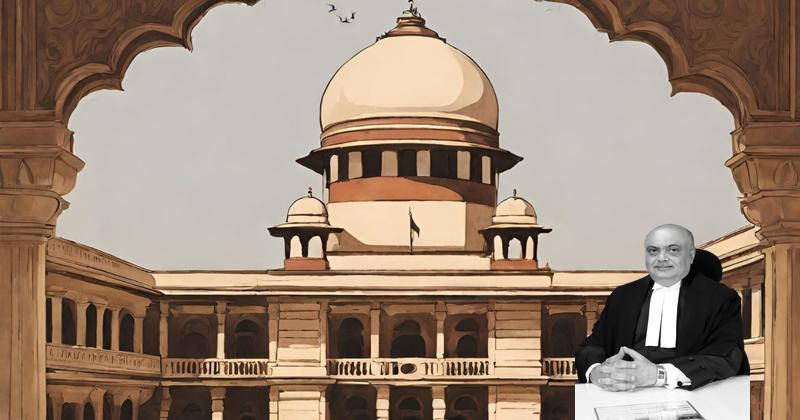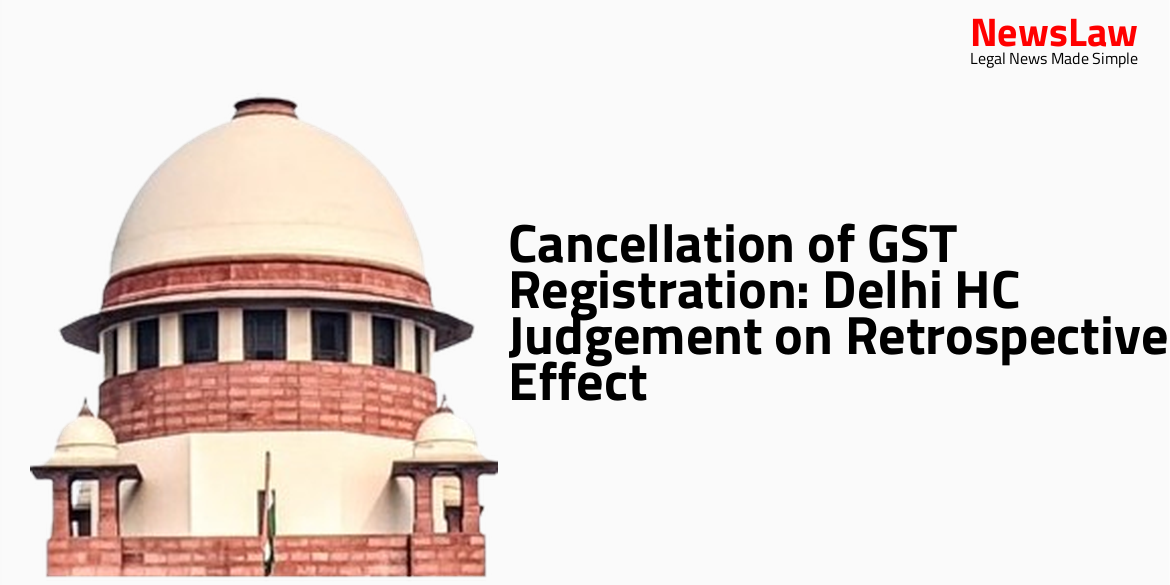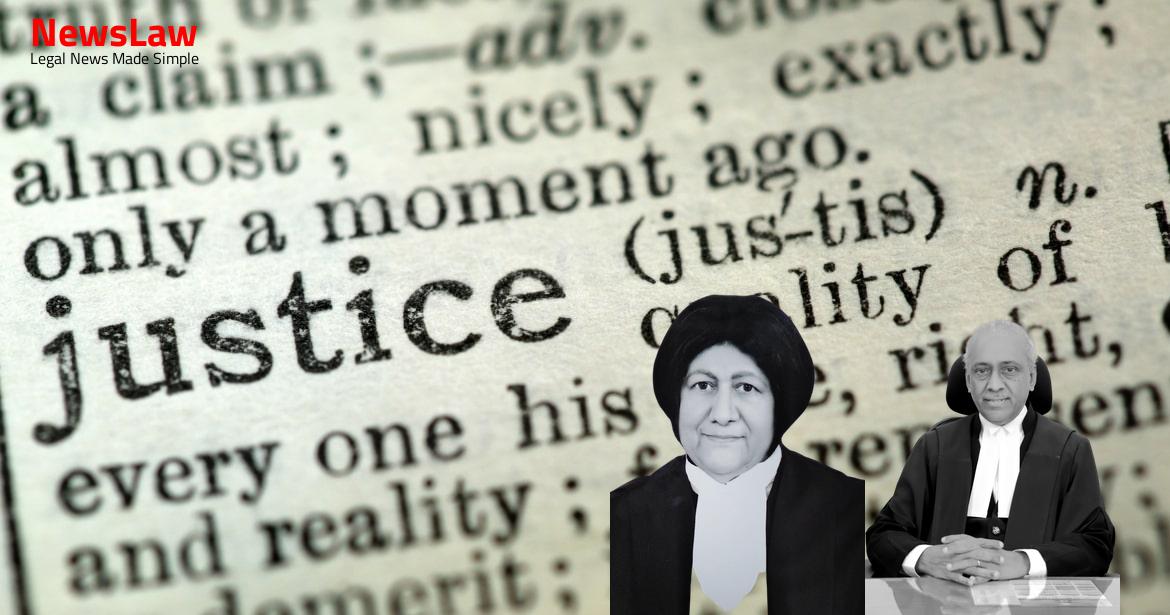The appellants no.1, 2 and 3 entered into a registered Agreement of Sale (hereinafter referred to as the “Agreement”) with the respondents on 22.11.1990 to sell the suit property for a consideration of Rs.21,000/-, against which Rs.3000/- had been received in advance. This led to the respondents filing of Original Suit No.165 of 1998 before the Munsif, District Court, Dindigul against the appellants for specific performance of the Agreement, damages and for recovery of money with interest. It was submitted that the claim of the respondents to have paid Rs.3,000/- on 18.09.1992; Rs.1,800/- on 24.07.1996; Rs.1,300/- on 25.07.1996 and Rs.1,000/- on 29.07.1996 i.e., a total of Rs.20,425/- and ultimately Rs.1,000/- on 21.04.1997
Thus, it was submitted that the trial court and even the First Appellate Court not recording any finding on the aspect of the readiness and willingness on the part of the respondents, the High Court’s observation in the Impugned Judgement on readiness and willingness of the respondents is without basis. Learned counsel submitted that as per the judgment rendered by the First Appellate Court and affirmed by the High Court, the last payment made and endorsed on 17.09.1991 has been accepted and thus three years from such date would be 16.09.1994 On this, learned counsel submitted that the contention of the respondents that the limitation would start from the judgment rendered in Original Suit No.551 of 1992 dated 24.07.1996, filed by appellant no.1 for seeking 9 possession and eviction of her husband and mother- in-law from the suit property, is not the correct legal perspective, as mere absence of possession would not have defeated the passing of title from the appellants in favour of the respondents by the execution of a Sale Deed.
Learned counsel summed up arguments by contending that in any view of the matter, prior to filing of the suit, the property in question had already been sold under registered Sale Deed to the appellant no.7 and the suit for specific performance was required to be dismissed as the Sale Deed to appellant no.7 has not been challenged. It was restated that there was no prior letter/notice from the plaintiffs (respondents) to the defendants (appellants) calling upon them to get the Sale Deed executed till the issuance of the Legal Notice dated 12 18.11.1997 i.e., after a gap of 6 12 years, identical to the facts in K.S. Learned counsel submitted that the First Appellate Court had recorded that the Sale Deed executed by appellant no.1 in favour of appellant no.7 dated 05.11.1997 was not bonafide as the said sale was effected after getting an order for declaration and recovery of possession of the suit property in favour of appellant no.1 on 24.07.1996 in Original Suit No.551 of 1992.
It was contended that the actual intention of the parties was not only to execute the Sale Deed but also handover the possession which is an implied term of every sale of immovable property and thus only when on 24.07.1996, the appellant concerned became capable of handing over possession, limitation would start from such date as otherwise even if the Sale Deed was executed in favour of the respondents, it would have been of no real consequence in the absence of possession being capable of hand over. Further, it was submitted that Section 55(f) of the TP Act contemplates duty of the seller to hand over possession of the property at the time of sale, and if the seller is not in possession of the property at the time of the agreement to sell or thereafter, it is a “material defect” in the property necessarily to be disclosed to the purchaser at the time of sale in accordance with Section 55(1)(a) of the TP Act. On the question of whether time is of the essence in such a contract, it was contended that when a party is not in possession to hand over the same at the time of execution of an agreement for sale, then time would not be of the essence as the right to sue would accrue in favour of the person to whom the suit property is required to be sold 16 only upon the vendor being in a position to hand over possession of the property to the buyer. In support of his contentions, learned counsel relied upon the decision of this Court in Godhra Electricity Company Limited v State of Gujarat, (1975) 1 SCC 199, the relevant paragraphs being 11 to 16; of the United Kingdom Supreme Court in The Commissioners for Her Majesty’s Revenue and Customs v Secret Hotels2 Limited 17 (formerly Med Hotels Limited), [2014] UKSC 16 dated 05.03.2014, the relevant being paragraph 33, and; The Interpretation of Contracts, 7 Edition by Sir Kim Lewison, the relevant being paragraph 3.189.
Also Read: https://newslaw.in/supreme-court/retirement-age-of-pti-sports-officer-in-university/
If the appellants failed to register the Sale Deed, respondent no.1 had a right to deposit the balance of sale consideration in the Civil Court and get sale with possession effected through Court from the first party i.e., appellants no.1 to 3. Thus, payment of Rs.3,000/- only out of Rs.21,000/- having been made, or at best Rs.7,000/- out of Rs.21,000/-, which is the amount indicated in the Legal Notice sent by the respondents to the appellants, the obvious import would be that the respondents had not complied with their obligation under the Agreement within the six-month period. In the present case, there is also no explanation, as to why, an excess amount of Rs.425/-, as claimed, was paid by respondent no.1 to the appellant no.1, when the 21 respondents’ specific stand is that due to the appellants not being in possession of the property so as to hand over possession to the respondents, delay was occasioned. The contention of the respondents becomes self- contradictory especially with regard to cause of action having arisen after such decree in favour of the appellant no.1 since even at the time of filing the underlying suit, actual possession not being with appellant no.1, the Sale Deed could not have been executed. Vidyanadam (supra) which had a similar factual matrix squarely applies in the facts and circumstances of the present case, on the issue that time was the essence of contract and even if time is not the essence of the agreement, in the event that there is no reference of any existence of any tenant in the building and it is mentioned that within a period of six months, the plaintiffs should purchase the stamp paper and pay the balance consideration whereupon the defendants will execute the Sale Deed, there is not a single letter or notice from the plaintiffs to the defendants calling upon them to vacate and get the Sale Deed executed within time.
From these two circumstances, it does not follow that any and every suit for specific performance of the agreement (which does not provide specifically that time is of the essence of the contract) should be decreed provided it is filed within the period of limitation notwithstanding the time-limits stipulated in the agreement for doing one or the other thing by one or the other party. Even if it is not of the essence of the contract, the Court may infer that it is to be performed in a reasonable time if the conditions are (evident?): (1) from the express terms of the contract; (2) from the nature of the property; and (3) from the surrounding circumstances, for example, the object of making the contract.” The suit agreement was in December 1978 and the six months’ period specified therein for completing the sale expired with 15-6-1979.
The plaintiff says that he has been calling upon Defendants 1 to 3 to get the tenant vacated and execute the sale deed and that the defendants were postponing the same representing that the tenant is not vacating the building.
The defendants’ case is that the tenant is their own relation, that he is ready to vacate at any point of time and that the very fact that the plaintiff has in his suit notice offered to purchase the house with the tenant itself shows that the story put forward by him is false. We reject the story put forward by the plaintiff that during the said period of 2 1/2 years, he has been repeatedly asking the defendants to get the tenant vacated and execute the sale deed and that they were asking for time on the ground that tenant was not vacating.
We are inclined to accept the defendants’ case that the values of the house property in Madurai town were rising fast and this must have induced the plaintiff to wake up after 2 1/2 years and demand specific performance. Except paying the small amount of Rs 5000 (as against the total consideration of Rs 60,000) the plaintiff did nothing until he issued the suit notice 2 1/2 years after the agreement. All this only means that while exercising its discretion, the court should also bear in mind that when the parties prescribe certain time-limit(s) for taking steps by one or the other party, it must have some significance and that the said time-limit(s) cannot be ignored altogether on the ground that time has not been made the essence of the contract (relating to immovable properties). The decisions relied upon by the respondents, relating to the conduct of parties are of no avail to them in the circumstances, as even if the case of later payments by the respondents to the appellants is accepted, the same being at great intervals and there being no willingness shown by them to pay the remaining amount or getting the Sale Deed ascribed on necessary stamp paper and giving notice to the appellants to execute the Sale Deed, it cannot be said that in the present 32 case, judged on the anvil of the conduct of parties, especially the appellants, time would not remain the essence of the contract.
The judgment/order of the Trial Court is revived and restored.
Case Title: ALAGAMMAL AND ORS. Vs. GANESAN AND ANR. (2024 INSC 28)
Case Number: C.A. No.-008185-008185 / 2009



